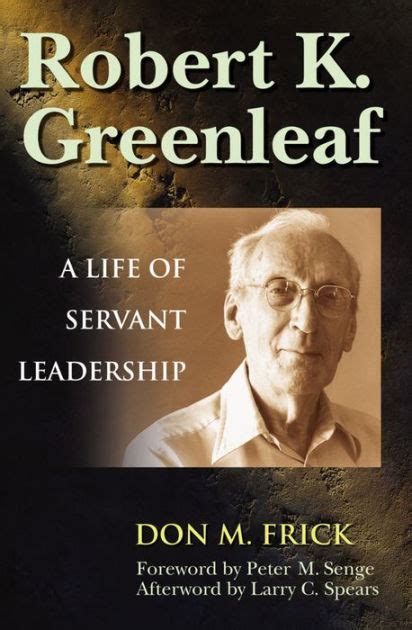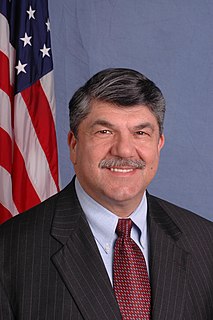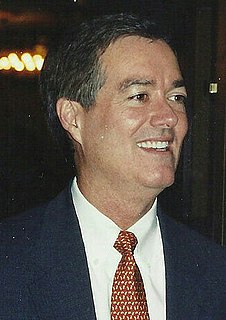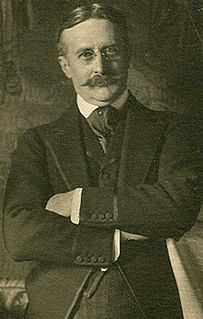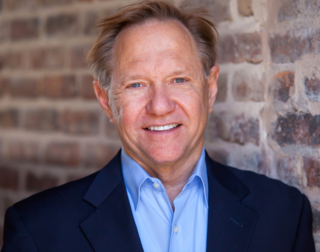A Quote by John C. Maxwell
The position does not make you a leader. The title, the promotion, the fancy corner office do not make you a leader. No, it is relationships with people that are the foundation, the very heart of leadership. Have you ever worked for someone you didn't like? It's difficult, isn't it? On the other hand, the leader you will follow anywhere and everywhere is one you know cares about you, and values you. This person has your best interests at heart. It is the leader who comes alongside to help you improve and grow.
Quote Topics
About
Alongside
Anywhere
Best
Best Interests
Best Interests At Heart
Cares
Corner
Difficult
Does
Ever
Everywhere
Fancy
Follow
Foundation
Grow
Hand
Heart
Help
Improve
Interests
Know
Leader
Leadership
Like
Make
Office
Other
People
Person
Position
Promotion
Relationships
Someone
Title
Values
Very
Will
Worked
Your
Related Quotes
Moral authority is another way to define servant leadership because it represents a reciprocal choice between leader and follower. If the leader is principle centered, he or she will develop moral authority. If the follower is principle centered, he or she will follow the leader. In this sense, both leaders and followers are followers. Why? They follow truth. They follow natural law. They follow principles. They follow a common, agreed-upon vision. They share values. They grow to trust one another.
A leader is only able to lead others because he disciplines himself. The person who does not know how to bow to discipline imposed from without, who does not know how to obey, will not make a good leader-nor will the one who has not learned to impose discipline within his own life. Those who scorn scripturally or legally constituted authority, or rebel against it, rarely qualify for high leadership positions.
Since the team understands that the leader is de facto in charge, in that respect, a leader has nothing to prove. But in another respect, a leader has everything to prove: Every member of the team must develop the trust and confidence that their leader will exercise good judgment, remain calm, and make the right decisions when it matters most.
The leader beyond the millennium will not be the leader who has learned the lessons of how to do it, with ledgers of 'hows' balanced with 'its' that dissolve in the crashing changes ahead. The leader for today and the future will be focused on how to be - how to develop quality, character mind-set, values, principles, and courage.
A good leader does not tell people to stand behind him. That position does not give anybody power but the leader. Today's politician isn't going to be the first marching to war, so why put that guy in front? Instead, a good leader tells people to stand beside him. That creates an invincible wall of people, and that's a force where everybody stands as a true equal.
Leader and followers are both following the invisible leader - the common purpose. The best executives put this common purpose clearly before their group. While leadership depends on depth of conviction and the power coming therefrom there must also be the ability to share that conviction with others, the ability to make purpose articulate. And then that common purpose becomes the leader.
A true and safe leader is likely to be one who has no desire to lead, but is forced into a position by the inward pressure of the Holy Spirit and the press of [circumstances]... The man who is ambitious to lead is disqualified as a leader. The true leader will have no desire to lord it over God's heritage, but will be humble, gentle, self-sacrificing and altogether ready to follow when the Spirit chooses another to lead.
The boss drives people; the leader coaches them. The boss depends on authority; the leader on good will. The boss inspires fear; the leader inspires enthusiasm. The boss says I; The leader says WE. The boss fixes the blame for the breakdown; the leader fixes the breakdown. The boss says, GO; the leader says Lets GO!
To be an effective leader, you must be trustworthy. If people don’t trust you, they won’t follow you. And if they won’t follow you, your organization won’t meet its goals. Sandy Allgeier explains that personal credibility comes down to a simple truth: It’s not about the type of person you are; it’s about the types of things you do. If you want to be a great leader, read The Personal Credibility Factor.

